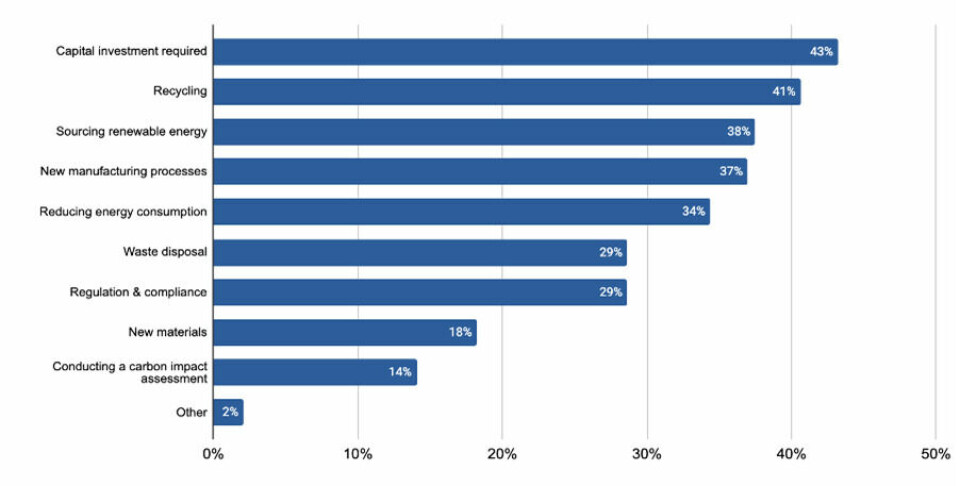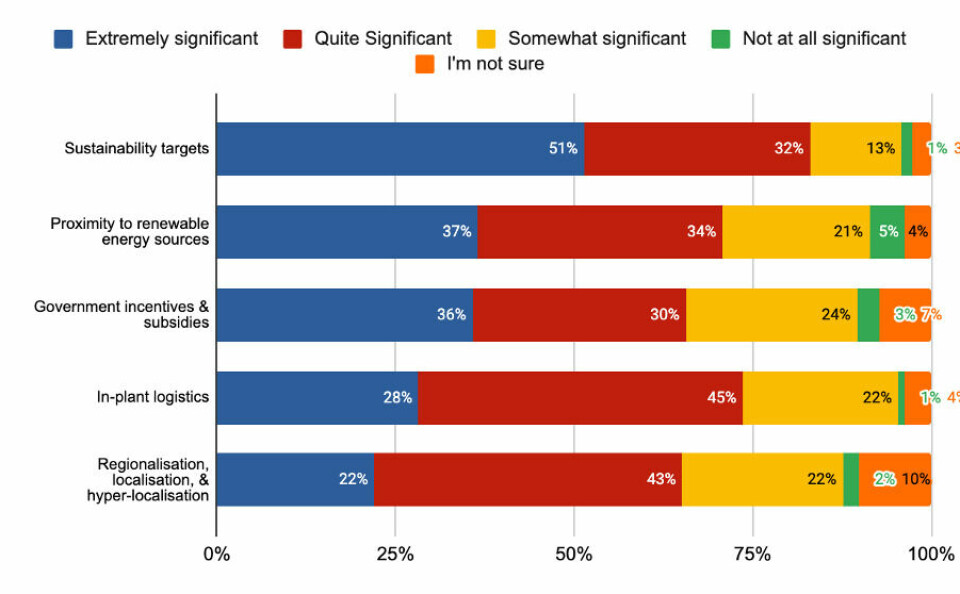Investment is main barrier to sustainable automotive manufacturing
A lack of capital investment is the main barrier to meeting sustainability targets in automotive manufacturing, according to the latest AMS & ABB Automotive Manufacturing Outlook Survey 2023.
In a global survey of industry experts, almost half (43%) of respondents identified capital investment as the primary challenge in achieving sustainable manufacturing. Concerns about the key challenges seem to have hardened since the previous 2022 survey, which found that 24% were concerned about levels of investment.

The leading concern was closely followed by recycling, which 41% of respondents said was a problem. Sourcing renewable energy (38%) and new manufacturing processes (37%) were also top concerns for automotive manufacturers, while using new materials (18%) and conducting carbon assessments (14%) are less of an issue across the board.
When asked about areas driving manufacturing complexity issues, around a third (34%) cited meeting sustainability targets as a leading concern, beaten only by supply chain disruption and parts shortages (42%) and drawing with the shift to more flexible and modular manufacturing (34%).
Looking ahead, respondents believe that sustainability targets will have the most significant impact on the industry over the next five years. Half of respondents (51%) said meeting sustainability targets will be “extremely significant”, and only 1% of those surveyed thought it won’t be a significant matter.

The array of industry challenges have been captured in this comprehensive global survey with AMS teaming up with robotics and automation experts ABB Robotics to provide insight into the current state of play in automotive manufacturing.
Beyond automotive manufacturing and related challenges, the survey also measures the overall market sentiment around vehicle production and sales volumes, and looks to the future, exploring where the likely opportunities are likely to be.


